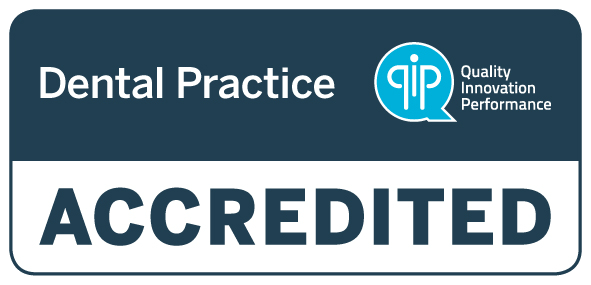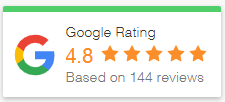Wisdom teeth are just after all teeth, so can grow and erupt normally into your mouth without causing any discomfort or soreness. Issues arise when there is not enough space in your jaw or the tooth is stuck in the wrong position. This is quite common and is often why when wisdom teeth erupt, they cause issues and pain. There may not be a need to remove your wisdom teeth, sometimes the pain is just normal from eruption but other times it can be signs of a bigger issue. Therefore it’s important to see your dentist if you’re suffering from any discomfort and they can talk to you about your individual situation.
What are wisdom teeth?
Wisdom teeth are the third set of molars. They are the final set of teeth to form, situated at the very back of the mouth. Most commonly people have four wisdom teeth – two on the bottom and two on the top. Unlike your other adult teeth which erupt during childhood, wisdom teeth don’t even begin the process of forming until around seven or eight. Wisdom teeth tend to typically erupt at around 18 years of age, and normally by no later than 30 years of age. Your wisdom teeth are designed to aid chewing rough, hard foods such as meats and nuts. Our diets have changed greatly from yesteryear – and we already have two sets of molars, eight teeth in total, working to chew tough foods, so it’s not crucial to keep your wisdom teeth if they are causing trouble. In fact, some people may only have one, two or three wisdom teeth form and have no trouble without the additional teeth. Perhaps this is a case of evolution, as wisdom teeth are no longer crucial for diet and survival. We now use very different cooking methods and use utensils like knives and forks to make bite size mouthfuls.Why do wisdom teeth cause issues?
Wisdom teeth really can be troublesome, it’s estimated around 85% of people have their wisdom teeth removed. Over time, think apes to human kind of time, human jaws have shrunk in size. Your jaw now often does not have room for 32 teeth (including four wisdom teeth). Wisdom teeth with no room for them to erupt into when they start emerging to the surface often push against other teeth, causing pain and discomfort.Impacted wisdom teeth
An impacted wisdom tooth is when the tooth is not able to fully erupt to the surface, only partially emerging or remaining hidden in the gums. These types of wisdom teeth are most likely to affect the surrounding teeth in your mouth and cause issues. A tooth pushing through at the wrong angle can directly impact the teeth pushing them out of place and causing overcrowding which overtime affects your entire jawline. Impacted wisdom teeth can cause your second molar, the tooth next to the wisdom tooth, to become vulnerable to decay or infection as the wisdom teeth pushes against it if it is erupting at an odd angle. It’s important to seek dental advice if you have any tooth pain at all, as it may not just be one tooth in trouble. In these situations, due to decay, you may have to have both teeth removed – not just the original wisdom tooth. In some cases, an impacted wisdom tooth may not cause any pain or discomfort, however there may still be cause for its removal. It may be at an odd angle which is difficult to clean or creates a pocket where food can catch in it. If this is the case your dentist may still recommend removing the wisdom tooth, even though it is not causing soreness as decay is likely to form in these hard-to-reach areas. Your dentist may ask you as an adult if you have had your wisdom teeth out. If you haven’t it’s standard for the dentist to take a full mouth x-ray to check the status of your wisdom teeth. Certain impacted wisdom teeth, if left in the jaw bone, don’t break out from the sac they develop in from cellular level. Consequently the sac may fill with fluid which can form a cyst or the cells may mutate which can cause damage to the jaw, nerves and teeth. In rare cases a tumour, usually benign, can develop in this area. So don’t be alarmed if your dentist asks you questions in adulthood about your wisdom teeth, they are routinely checking your oral health.What is wisdom teeth pain?
Wisdom teeth can cause a multitude of symptoms and soreness.Swollen Gums and Sore Jaw
As the wisdom teeth begin to erupt, they will often push against surrounding teeth, causing them to shift. This movement can create discomfort in the jaw, symptoms can range from aches, swelling and stiffness to difficulty opening the jaw and even difficulty breathing. The movement of surrounding teeth, as well as the entry of the new wisdom teeth, also affects the gums. They often become swollen and red, and are painful to touch, in certain cases they may cause the gums in the area to bleed.Sinus Pain
Wisdom teeth surfacing on the upper jaw can cause troubles with your sinuses. As the roots of the wisdom teeth develop they can grow up against the sinus cavity, which causes immense pressure and pain. If your wisdom tooth is affecting your sinuses, it can also cause headaches and congestion.Trouble Eating
As wisdom teeth grow through, they can be irritating and make chewing and eating difficult. It may simply be temporary growing pains as the tooth comes through and creates pressure on the other teeth, or it could be signs of an impacted tooth causing issues. If your teeth have moved, the misalignment can make moving your jaw difficult to open so eating can be painful.Can I self-treat wisdom tooth pain?
Wisdom tooth discomfort is inevitable for most people, the level of pain can vary greatly depending on your individual case. If you are experiencing any pain at all, due to your wisdom teeth, it’s important you consult your dentist for examination. You may have been advised that your wisdom teeth are surfacing correctly, and removal isn’t required. If this is the case, there are several at home remedies you can utilise while your new teeth settle into place. These treatments are also good if you are waiting for your dental appointment to have your wisdom teeth removed by your dentist.- Over-the-counter pain relief
- Saltwater rinse
- Apply cold
Wisdom teeth removal procedure
At the initial consult your dentist will complete a thorough examination of your teeth and take x-rays of your mouth, with this information they will be able to determine if your wisdom tooth (or teeth) require removing. Often they will need a full mouth x-ray called an OPG to view your wisdom teeth and surrounding structures accurately. There are many options your dentist may suggest depending on your individual circumstances. Learn more about the full wisdom tooth removal procedures. Learn more- In-chair wisdom teeth removalMost commonly wisdom teeth are removed at the dental surgery in the dental chair.Depending on your individual circumstances your dentist can remove anywhere from one to all four wisdom teeth in a single appointment. In-chair wisdom teeth removal is also the most cost effective procedure as it has less overheads such as hospital use and general anaesthetic (going to sleep).
- Specialist in-chair wisdom teeth removalIn certain instances, your dentist may recommend you see a wisdom tooth specialist (maxillofacial surgeon) for your treatment. These dentists are highly trained at removing more difficult cases such as impacted wisdom teeth that are very close to your jaw nerve.
- In-chair sedationFor some patients dental anxiety can be a factor, nitrous oxide (happy gas) is a way to ensure you are relaxed throughout the procedure. You are still alert during the procedure and the sedative wears off in minutes of stopping inhalation so you can still drive home.
- General anaesthetic wisdom teeth removalFor highly complex cases or for patients who wish to be completely asleep during the procedure, wisdom teeth removal can be performed in hospital under general anaesthetic. The procedure would be a day surgery and you’ll be able to go home the same day once you have recovered from the sedation.
Aftercare for wisdom teeth removal
After your surgery your dentist will outline how the procedure went and if any follow up appointments are required. Once you are home after your wisdom teeth removal there are certain things to keep in mind when monitoring your healing.After procedure pain
Feeling discomfort after your procedure is normal, the severity will depend on the complexity of the wisdom teeth removal. In most instances over the counter medication such as Ibuprofen and Paracetamol is recommended and more than sufficient to ease any discomfort. Your dentist may prescribe additional medication, but this is not common. Swelling in the affected area is common after the procedure and can last up for two to three days. Swelling does not mean the site is infected, unless there are additional symptoms such as fever or pus in the area, there is no reason for concern. Applying an icepack to the cheek can help to reduce swelling. It’s also natural to have some slight bleeding or oozing from the wound site after the extraction for the first day. If you’ve been given gauze by your dentist, you can place it where the tooth was and bite down firmly to control bleeding. Sitting upright and applying icepacks can also help.Things to avoid after wisdom tooth removal
- Avoid using an electric toothbrush
- Avoid chewing directly on the site of the removed tooth
- Avoid hard or small foods – try to stick to soft foods and liquids at first
- Avoid hot liquids
- Avoid using a straw – the sucking can promote bleeding and dislodge the blood clot
- Avoid using over-the-counter mouthwash
- Avoid smoking
Surgery complications
It’s important to follow all directions after the procedure, the most common complication after wisdom teeth removal is a ‘dry socket’. Dry socket is where the blood clot becomes dislodged from the socket before the wound has fully healed. Dry socket can lead to throbbing pain. It is commonly caused by rinsing the mouth too much after treatment, smoking or touching the area constantly with your tongue. Learn more on how long wisdom teeth removal takes to heal. Learn moreWisdom teeth complications
If problematic wisdom teeth are left untreated long term they can cause:- Chronic pain
- Widespread tooth decay
- Damage to surrounding teeth
- Recurring infections
- Cysts and tumours
- Gum disease
Early intervention for wisdom teeth
While there is no prevention for wisdom teeth pain, there is early intervention. Wisdom teeth most commonly begin to surface around 18 years of age, it’s a good idea to see your dentist in your mid teens to check for your wisdom teeth. X-rays will give your dentist a good indication of the direction your wisdom teeth will travel – or in fact if you even have them! If signs show the teeth are severely impacted and likely to cause issues when they erupt your dentist may recommend removing them before they start to cause trouble. If removed early, the roots of your wisdom teeth and bone are not fully formed, so recovery is normally a lot quicker after surgery. Another reason for removing wisdom teeth early is for orthodontic treatment. If you are going to undertake this treatment, your treating dentist may recommend removing the wisdom teeth ahead of time so they don’t counteract the orthodontic treatment later. Often early intervention wisdom teeth removal is undertaken using general anaesthetic as the teeth can be far below the surface.Not wisdom teeth pain – then what?
It’s not always your wisdom teeth that are causing you pain. After an examination, your dentist will be able to determine the cause of your soreness and recommend options for relief. Examples of other causes include:- Jaw pain – may be Temporomandibular Joint Disorder (TMD) which is pain in the jaw and surrounding muscles.
- Piercing pain – can be triggered by cracks, chips or cavities in the tooth, where you may need a new filling or crown.
- Aching pain – could be caused by an infection or abscess, or possibly by an impacted tooth or from periodontal disease.










